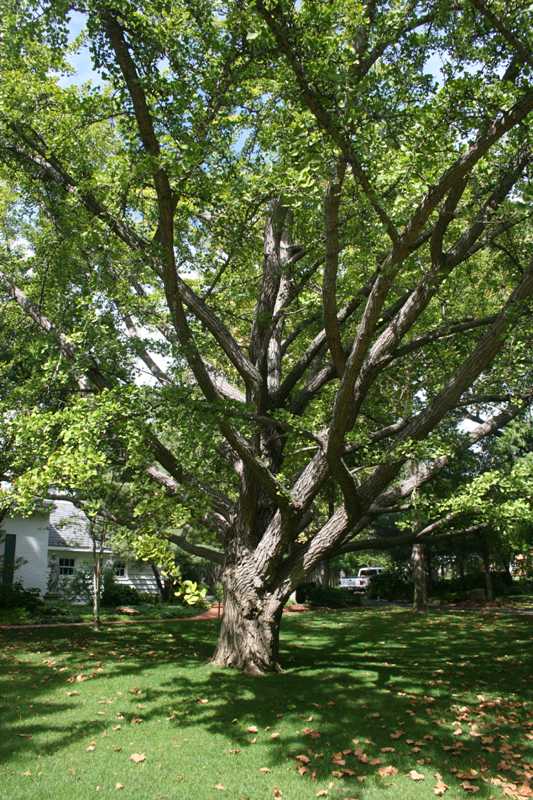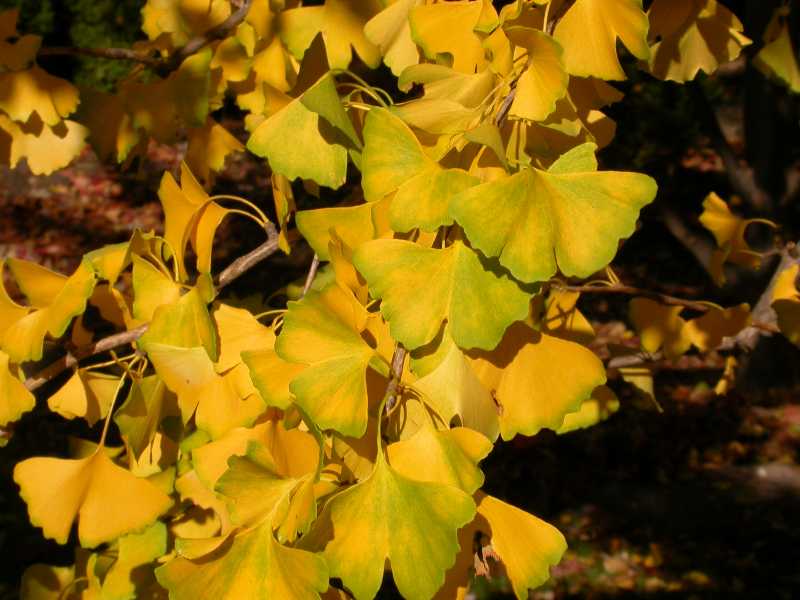Ginkgo trees have very unique properties - they are capable of growing more than 130 feet and can live for over one thousand years. In fact, there are some trees in China claimed to be over 2,500 years old.
The plant has a number of therapeutic properties and contains high levels of flavonoids and terpenoids, these are antioxidants that provide protection against oxidative cell damage from harmful free radicals.
Over recent years, ginkgo supplements have become increasingly popular - they are currently among the top-selling herbal medications. Ginkgo biloba extract (GBE) is collected from the dried green leaves of the plant and is available as liquid extracts, capsules, and tablets.
The dried leaves of the plant can also be used to make tea.
History

Ginkgo Biloba trees can live for thousands
of years
Courtesy: Missouri Botanical Garden
Introduced very early to human history, the trees were originally cultivated for consumption and as a traditional medicine.
Ginkgo Biloba was first used for its medicinal properties in Ancient China. The Chinese took Ginkgo for its claimed cognitive benefits and to alleviate symptoms of asthma, they also ate ginkgo nuts because of their "strengthening" properties.
Other traditional uses of ginkgo include:
- Preventing bed wetting
- Increasing sexual energy
- Treating intestinal worms and gonorrhea.
Engelbert Kaempfer was the first European to discover Ginkgo, in the late 1600s. By 1771 Linnaeus finally named the tree Ginkgo Biloba which translates into "silver plume with two lobes."
In 1784 Ginkgo was brought over to America to the garden of William Hamilton.
Medicinal uses of Ginkgo Biloba
Memory Enhancement - Treating Dementia and Alzheimer's

Gingko Biloba leaves turn into a beautiful
uniform golden yellow in autumn.
Courtesy: Missouri Botanical Garden
Some of its benefits include:
- Improved thinking
- Improved memory
- Better social behavior
Another study, published in JAMA, similarly found that EGb 761 "was safe and appears capable of stabilizing and, in a substantial number of cases, improving the cognitive performance and the social functioning of demented patients for 6 months to 1 year."
Researchers believe that Ginkgo improves cognitive function because it promotes good blood circulation in the brain and protects it from neuronal damage.
However, Ginkgo doesn't seem to improve memory among people who are healthy.
A meta-analysis, published in the journal Human Psychopharmacology: Clinical and Experimental in 2012, found that there was zero effect of Ginkgo on attention and memory in healthy individuals.
Anxiety
Ginkgo may help alleviate the symptoms of anxiety.One study, published in the Journal of Psychiatric Research, found that people with generalized anxiety disorder who took gingko experienced better anxiety relief than those on placebo.
Side effects
Patients with blood circulation disorders or individuals on anticoagulants, such as aspirin, are at risk of experiencing undesirable effects after taking Ginkgo.In addition, if you are on antidepressants you are strongly advised not to take Ginkgo as it inhibits monoamine oxidase, reducing the effectiveness of the medications (such as selective serotonin reuptake inhibitors and monoamine oxidase inhibitors).
Side effects include:
- Nausea
- Diarrhea
- Dizziness
- Headaches
- Stomach ache
- Restlessness
- Vomiting
Precautions
Ginkgo leaves contain long-chain alkylphenols, which are highly allergenic.Therefore, people who are allergic to poison ivy and other plants with alkylphenols, are advised to completely avoid taking Ginkgo.
No comments:
Post a Comment